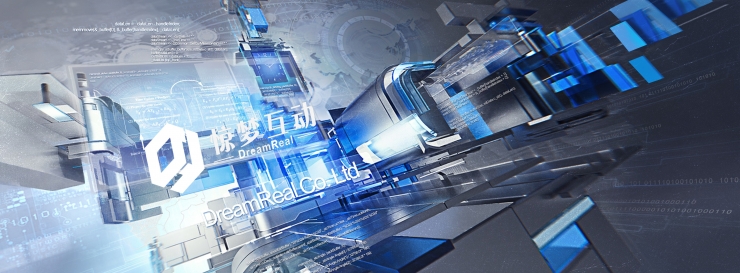Since the beginning of this year, the VR boom has swept across the globe, and numerous VR products have emerged to hit the consumer market. At the same time, however, manufacturers have postponed the “bounced†events for the VR products originally scheduled to be listed on the market. Even Sony, HTC and FaceBook’s Oculus have emerged. Big-name manufacturers have not been spared. This people can not help but ask: what exactly is the VR industry?
“The most difficult aspect of virtual reality is to turn 'virtual' into 'reality', and it is a good project that can be implemented.†2016 China Joy, exhibitor of VR large-scale experience hall as a solution provider Language breaks the truth behind the frequent flection of VR items.

Vendors' "jumping" has some hardships: immature technology and high costs
With the strong injection of various capitals, the VR application scene has rapidly expanded from the military market to the enterprise market, to the mass market, and has penetrated into many fields such as games, film and television, architecture, education, design, medical care, and exhibitions.
However, the support of capital and the enthusiasm of the media cannot cover the problems existing in VR products and technologies.
On June 16 this year, Sony announced that it would postpone the sale of PlayStation VR, which was originally scheduled for sale in the first half of the year, to October 13. This is not the first time that PS products have been skipped. In fact, taking a broad view of the entire VR field, the incidents of skipping tickets are endless. Each VR manufacturer, game player, and service provider seems to be bounced into addiction, and it has been ridiculed by many consumers as “jumping votes if they don’t agree.â€
The fundamental reason behind frequent vendor bounces is actually the fate of the current VR industry: the technical bottleneck. In the current VR technology is not yet ripe for commercialization of the ground, on the one hand leading to high R & D costs, project investment return is low, on the other hand, it also seriously restricts the progress of product development.
An industry insider who asked not to be named said: “In order to welcome the VR project launched by the joint venture, it is easy to die. The bounce ticket is still good, as long as you don’t leave the final product.â€
The cost of positioning solutions remains high, and the development of the VR experience hall is hindered
The commercialization of VR in the Chinese market seems to be another way to go, that is, the VR experience halls that are everywhere. In this subdivision area, technical bottlenecks and cost problems also exist.
Li Zhi, the founder of Dream Interactive, a provider of total solution solutions for the VR large-scale experience gallery, stated that “Taking VR spatial location technology as an example, the number of companies that can provide large-scale multiplayer interaction in China is currently less than 4%, but the costs are too high, resulting in projects. Can't land.â€
VR spatial positioning is a very important supporting technology that allows the actual movement of the experiencer to be consistent with the game (motion capture), so that the experiencer will not cause vertigo due to inconsistency in limb and vision movements. Users can experience in the most natural way, and immersion will be stronger.
According to the author's understanding, a 100 square meter VR experience hall in China, the price of Optitrack optical positioning scheme is about 600,000, and the positioning is easily affected by obstacles; and the Light House program provided by HTC can only be used by one person within a range of 25 square meters. , It is more suitable for the family living room, and can not support the need to receive a large number of passenger flow VR tourism, VR purchase, VR experience and other projects, these have become the main reason for many investors deterred from such projects.
"Imagine if you want to open a VR experience hall or if you want to invest in a VR project as an investor, its technical cost is too high and it is obviously higher than the expected revenue. Will you also consider it?" Management.
Technological Innovation Compresses Cost and Helps VR Experience Pavilion Development
It can be said that whether it can overcome the technical bottleneck and achieve reasonable cost control determines the project feasibility and investment return of the VR experience hall.
“Although it is difficult to implement the technology, it is not the most difficult part. The real difficulty lies in how to commercialize the technology. The goal of our team is to achieve a low-cost, high-efficiency multi-person offline VR experience hall solution.†Dream Interactive Li Li, director of research and development, said.
IMU+UWB technology is a combination of inertial measurement and ultra-wideband technology. The entire solution mainly consists of a number of base stations in the corner of the scene (an eight base station scenario is used in the exhibition) and positioning tags in the scene to complete the basic positioning. IMU information is added to the tag to calculate the inertial data, and inertial data and UWB data are used. Data fusion to achieve accurate positioning. In the case of realizing the same area scenario, only one-tenth of the IMU+UWB solution is available at optical prices. The price per 100 square meters is less than 100,000. The single system range can cover 1,000 square meters and can accommodate 40 people. This means that items such as VR experience halls, VR tours, and VR interactive games that require a large number of positioning technologies have lower entry thresholds and higher profitability.
Optoelectronic Information Series
Photoelectric information series laboratory related equipment
Optoelectronic Information Product,Optical Bench Experiments Physics,Optical Devices Physics,Optical Physics Properties
Yuheng Optics Co., Ltd.(Changchun) , https://www.yhencoder.com